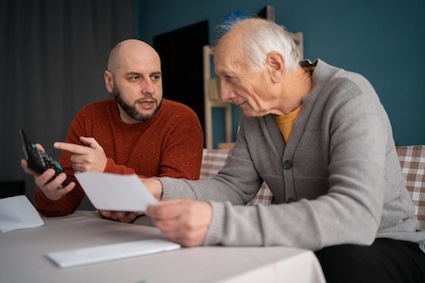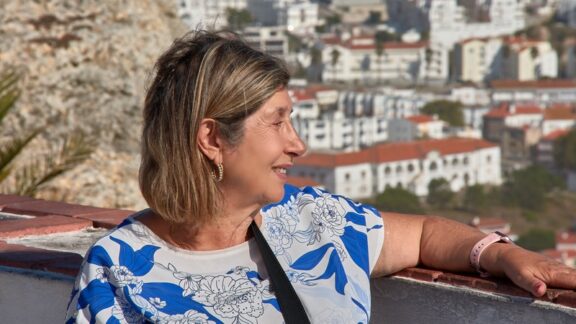When families decide that power of attorney is needed for Mom or Dad, the task of financial caregiving often falls to the grown kids. For a peek into the topic, Kiplinger interviewed Beth Pinsker, a certified financial planner, MarketWatch columnist and author of “My Mother’s Money: A Guide to Financial Caregiving.”
Q: Your new book is about becoming a financial caregiver for your mother after she grew seriously ill due to complications from spinal surgery. What is financial caregiving?
A: Financial caregiving is when you step into somebody else’s shoes and take over their affairs. Most people are dragged into this role sideways and have no idea how the person they’re helping has been handling money. When I started helping my mom, I knew nothing about how she had been running her household, and she wasn’t in a position to tell me anything after her back surgery. To keep the mortgage paid and the lights on, I had to figure out how she had been paying her bills by sorting through the papers on her desk.
Q: What are the most important steps people should take to prepare for the possibility of becoming a financial caregiver?
A: You need to make sure the person you’re going to take care of has two key documents: a durable power of attorney that legally allows you to make financial decisions on their behalf and, if you’re also going to be making medical decisions, a health care proxy. And make sure you have access to those documents. If you can’t put your hands on them, you’re going to be stuck and might end up in court.
 For financial matters, a lot of people think it’s enough to be a joint owner on an account with an aging parent, but that can be problematic. There may be one account that you’re a joint signer on but other accounts you need access to — brokerage accounts, credit cards, that sort of thing. You need power of attorney for the cable company, the electric company, the lawn care company. You never know when somebody’s going to say they need power of attorney in order to process whatever it is you want to process.
For financial matters, a lot of people think it’s enough to be a joint owner on an account with an aging parent, but that can be problematic. There may be one account that you’re a joint signer on but other accounts you need access to — brokerage accounts, credit cards, that sort of thing. You need power of attorney for the cable company, the electric company, the lawn care company. You never know when somebody’s going to say they need power of attorney in order to process whatever it is you want to process.
Q: What if the tables are turned? How can people prepare their loved ones to step into the role of financial caregiver for them?
A: Put together what I call a cheat sheet and a death file. My mom did this for me. The cheat sheet lists all of the person’s medicines and their doses, surgical history, key doctors, their Social Security number. The death file is everything you need if something happens to them, like their will or trust, a list of their accounts, birth certificate, life insurance contract and cemetery plot information.
Related: Is It Time for Assisted Living?
Q: What’s the hardest thing about managing someone else’s money?
A: The hardest part for me was trying to maintain my mom’s very precise financial routine. My mom was always very particular about her finances and a little old-fashioned. She didn’t trust electronic banking. It was all paper statements and paper checks. I was managing her finances from a thousand miles away, and I had to take care of things electronically. I always thought she was going to be mad at me. I was afraid the whole time I wasn’t living up to her standards.
My general advice is to keep people in the loop. The person you’re taking care of or a sibling is going to want some accounting. I kept a spreadsheet of money coming in and going out of my mom’s account and things I paid out of my own pocket that I then reimbursed myself for.
Q: What is one thing you wish your mom had done to better prepare you?
A: I wish we had talked more openly in the years before she got sick, because there were a lot of things that didn’t occur to us to talk about once we were in emergency mode. These were small things, like asking about certain missing pieces of jewelry, but still important. The one that haunts me is that I think she had a storage locker in the basement of her apartment building that had my grandmother’s paintings in it, and I couldn’t find any record of it after my mom died. Maybe someday the building will call me and say they found it.
Related: When Helping Mom and Dad Hurts Your Wallet
Cameron Huddleston is a contributing writer at Kiplinger Personal Finance magazine. For more on this and similar money topics, visit Kiplinger.com.
©2025 The Kiplinger Washington Editors, Inc. Distributed by Tribune Content Agency, LLC.
Read more financial articles on Seniors Guide:
How to Talk to Your Parents About Money




